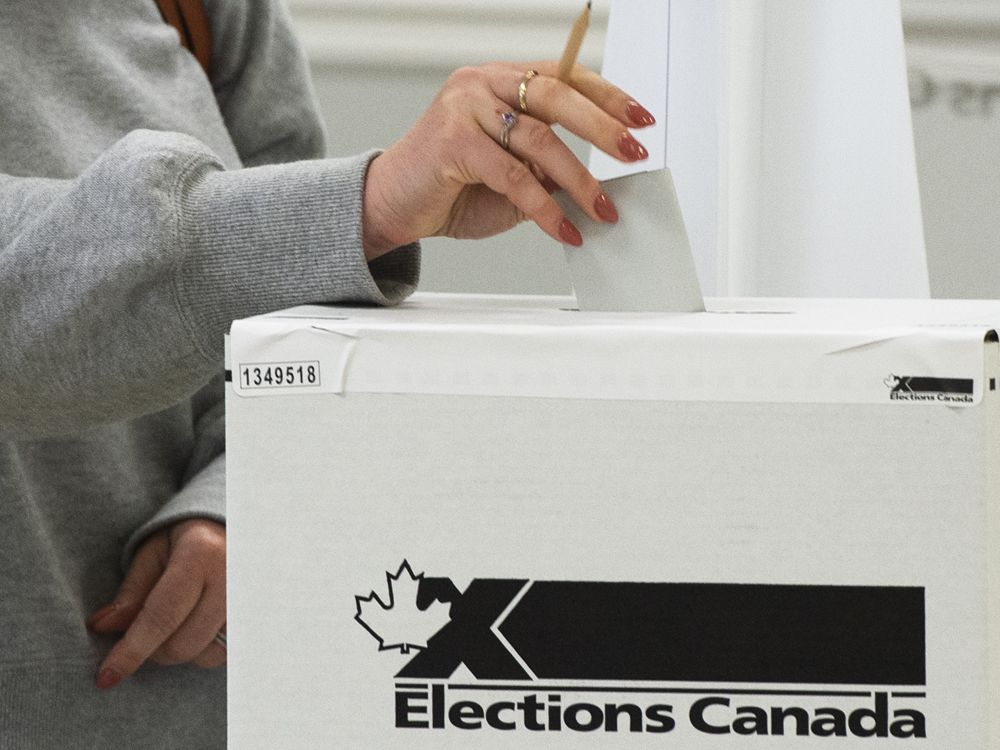More Than Half Of Canadians Say Housing Policies Will Influence How They Will Vote Monday

An international trade conflict and economic turmoil have dominated the 2025 federal election campaign, but housing remains a top priority for voters, according to a new study by Royal LePage .
The study, which interviewed 2,417 adults across Canada in April, found that 55 per cent said a political party or candidate’s housing policies will influence their vote when Canadians head to the polls this Monday.
Younger voters were even more likely to be focused on housing with 72 per cent of generation Z (aged 18 to 28) and 59 per cent of millennials (aged 29 to 44) indicating that it will impact their vote.
“While much of the discussion has been centred on navigating the rough waters of the U.S. trade conflict, housing affordability has re-emerged as a major priority this election cycle,” Phil Soper, chief executive of Royal LePage, said in a press release . “For young Canadians in particular, there is a clear demand for a leader who can support their goal of achieving home ownership.”
Housing ranked as Canadians’ third most important election priority (62 per cent), after the economy and cost of living (86 per cent) and health care (75 per cent). In Vancouver, Canada’s most expensive housing market, it ranked as the second most important issue, topping health care.
“Initiatives that support young families and first-time buyers, especially in high-cost markets, have been proposed across the political spectrum, whether by easing the path for developers to build more homes or offering financial relief to buyers. But, tackling Canada’s chronic supply shortage will take more than short-term solutions,” Soper said. “Despite recent market shifts — including lower interest rates and increased inventory — many young voters recognize that these changes alone are not enough. They are seeking real, lasting solutions that can turn the dream of home ownership into a reality.”
The federal party candidates have pitched various housing policies to improve affordability, increase supply and reduce red tape for new development.
Those include cutting the sales tax on new home purchases. The Liberals have said they will scrap the GST for first-time homebuyers on properties valued at up to $1 million and the Conservatives have promised to axe the tax for new homes sales priced up to $1.3 million.
The Conservatives have also outlined a plan to build 2.3 million homes over the next five years by cutting development taxes and incentivizing cities to build more homes. The Liberals have said they are going to double the pace of residential construction over the next decade through policies such as providing low-cost financing options to developers building affordable homes.
“More than ever, voters are looking for leadership that can offer stability, protect Canada’s economic interests, and steer the country through turbulent times,” Soper said. “The next federal government must follow through on its promises and act decisively to ensure that more housing gets built — quickly and at scale. Real progress will require bold, coordinated action and long-term planning from all levels of government.”
- Here's how important homeownership is to building wealth in Canada
- The best mortgage rates in Canada right now
- Canadians turn against condos as a 'good' investment as sector goes through 'rough period'
Canadians head to the polls on April 28.
• Email: novid@postmedia.com
Bookmark our website and support our journalism: Don’t miss the business news you need to know — add financialpost.com to your bookmarks and sign up for our newsletters here.


